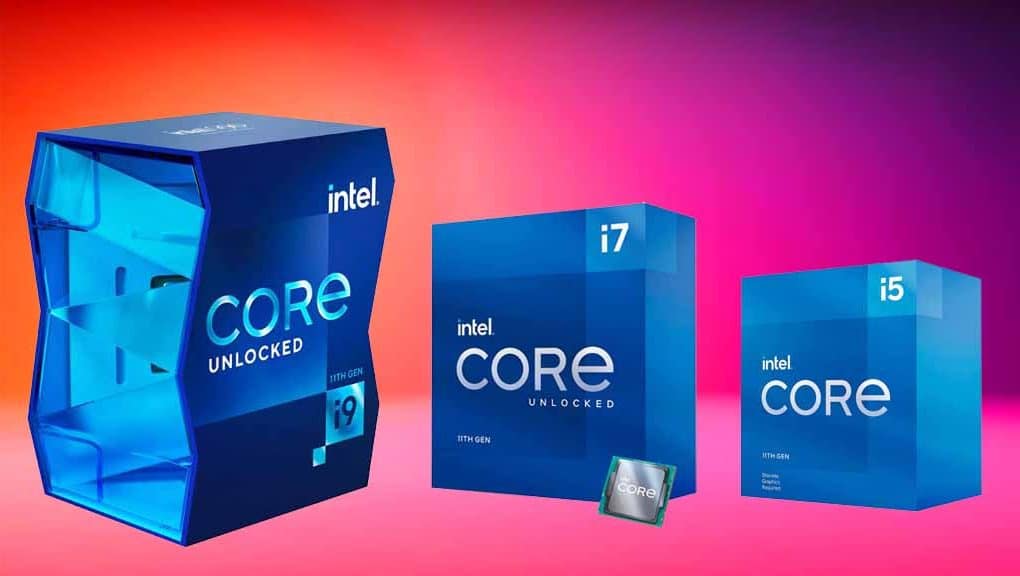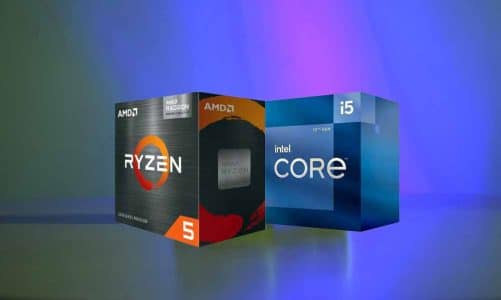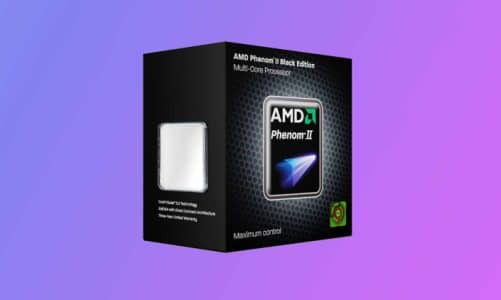Intel 11th gen CPUs are a thing of the past now, but they still offer plenty of performance when it comes to gaming. With no Core i3 chips included in the line-up, the entire Rocket Lake Series looks tilting towards the mid-range or high-end gaming enthusiasts.
On the top of Intel’s 11th generation, line-up sits the Core i9-11900K which was the fastest gaming CPU of its time with 8 cores/16 threads and a boost clock speed up to 5.3 GHz. There’s a generation gap between the Rocket Lake and Raptor Lake CPUs now, but still, the 11th-generation processors show promising performance in AAA gaming.
Also, there’s a lot to choose from in Rocket Lake Series when it comes to gaming. Starting from the low-budget Core i5 CPUs to all the way up to the top-end Core i9 gaming chips, there are a lot of chips in this Series.
The mid-range CPUs in the 11th generation deliver you the most bang for your buck, but to get the maximum performance you’ll have to go with top-tier options. Especially, if you are into high-end gaming and content creation at the same time, then you’ll have to go with plenty of cores and clock speed.
And if somehow you love playing games by overclocking your CPU, then you’ll have to focus on the “K” suffix processors in the 11th gen line-up. But to get extra juice out of these chips, you’ll need a high-end CPU cooler that can handle those plummeting temperatures.
Moreover, going with an 11th-generation Intel CPU would need you to have an LGA 1200 socket motherboard in your system. Now, these boards are still pricy today if you compare them to LGA 1700 motherboards that house the 12th-generation chips.
But which CPU segment in the 11th generation Series you should go with, Core i5, Core i7, or Core i9? Well, all of this depends upon the type of gaming workload that you’ll throw on your PC.
The Core i5 chips in the Rocket Lake Series come with six cores and a boost clock speed of up to 4.6 GHz. We all know that six cores are the bare minimum to have in a gaming PC. We now have games that are designed to utilize more cores, so a decent option would be to go with an 8-core CPU.
With-in Intel’s Rocket Lake Series, Core i7 and Core i9 CPUs offer plenty of gaming performance as they are packed with more cores and clock speed. Now, this is where you’ll decide whether you’ll be overclocking your CPU to get the most out of it or staying with the out-of-box clock speeds.
For overclockers, the Core i9 CPUs are a favourable option as they allow them to break the 5.0 GHz speed barrier using a high-end cooling solution.
List of the Best 11th-Gen Intel CPUs for Gaming
| CPUs | Cores/Threads | Base Clock Speed | Boost Clock Speed | Cache | TDP |
| Core i5-11400F | 6/12 | 2.6 GHz | 4.4 GHz | 12MB | 65W |
| Core i5 11600K | 6/12 | 3.9 GHz | 4.9 GHz | 12MB | 95W |
| Core i7 11700K | 8/12 | 3.6 GHz | 5.0 GHz | 12MB | 95W |
| Core i9 11900K | 8/12 | 3.5 GHz | 5.3 GHz | 16MB | 95W |
We’ve listed 11th-generation gaming CPUs for every budget range in this guide. All you need is to scroll through and find the one that easily fits your budget and needs.
Intel Core i5-11400F – Best Budget Pick
Cores: 6 | Threads: 12 | Base Clock Speed: 2.6 GHz | Boost Clock Speed: 4.4 GHz | Cache: 12MB | Socket: LGA 1200 | TDP: 65W
Reasons to Buy:
- A cheaper six-core CPU for budget gaming builds
- Ideal for 1080p gaming machines
- Low TDP
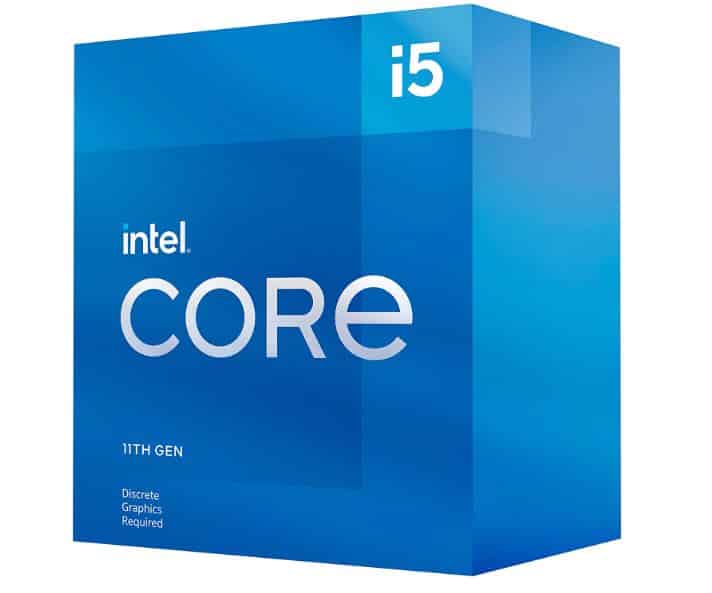
The Core i5 11400F sits at the bottom of Intel’s Rocket Lake line-up. It’s roughly $40 to $50 cheaper than the 12th generation Core i5 12400F CPU. And if you are tight on budget, then the i5 11400F is the most inexpensive six-core processor to throw in your bucket.
The “F” suffix on this chip denotes that there are no integrated graphics in the package. However, this is another reason that is responsible for the lower price tag of this processor. And if you need decent gaming performance, then you’ll never depend upon the integrated graphics at all.
Moreover, being an “F” variant CPU, it has a locked multiplier, so you cannot overclock this CPU to squeeze extra performance out of it. All of these sacrifices do make it a cheaper option, but just for budget gaming geeks.
Also, the Core i5 11400F comes with a 2.6 GHz base clock speed on all of its six cores. And under full workloads, it can attain boost speeds all the way up to 4.4 GHz. Its competitor, the AMD Ryzen 5 5600 packs the same amount of cores and threads but ends up delivering better single-core and multicore performance due to its higher base clock speed.
And if there’s any Core i5 CPU in the 11th generation that goes on par with AMD’s Ryzen 5 5600X, then it’s the Core i5 11600K. But to go with that, you have to leave your budget on one side. But for now, the i5 11400F is the lowest that you can get at the moment.
As far as the gaming performance of Core i5 11400F is concerned, it shows decent performance gains over the previous generation Core i5 chips in CPU-intensive games. If your gaming taste is limited to 1080p, then is a cheaper processor to play games like Shadow of the Tomb Raider, Metro: Exodus, Assasin’s Creed Odyssey, and Far Cry New Dawn over 60fps.
But to get the best performance, you’ll need to pair Core i5 11400F with a powerful GPU like RTX 2080 or RTX 3070. This CPU is remarkably cheaper than the competing chips in and across its family. But there’s no way you can overclock it to get an extra punch of performance out of it.
Intel Core i5-11600K – Best Value Processor in Intel Rocket Lake
Cores: 6 | Threads: 12 | Base Clock Speed: 3.90 GHz | Boost Clock Speed: 4.9 GHz | Cache: 12MB | Socket: LGA 1200 | TDP: 95W
Reasons to Buy:
- Solid gaming performance
- Single and multicore performance
- Overclocking
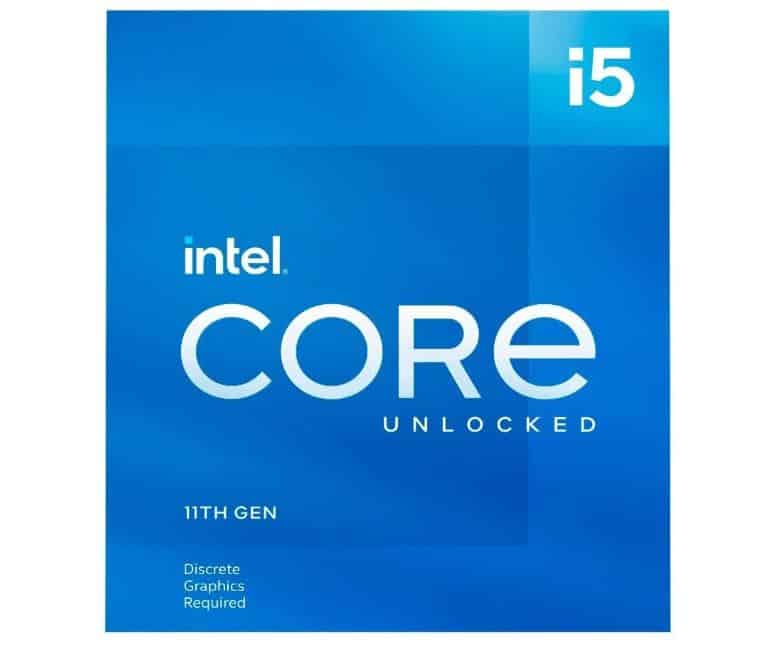
The Core i5-11600K unleashes the most performance than any previous generation Core i5 CPUs. It brings an amazing 3.9 GHz base clock speed right out of the box on each of its six cores. It’s our favourite CPU in the entire Rocket Lake Series as it equalizes the performance and price in one frame.
Surprisingly, the price tag on the six-core Core i5-11600K still remains friendly despite its powerful features. Currently, it’s closer in price comparison to AMD’s Ryzen 5 5600X processor. When compared to the Core i5 11400F, the Core i5 11600K stretches its wings to 3.9 GHz at the base and 4.9 GHz at boost clock speeds.
Moreover, the i5-11600K offers a better price-to-performance ratio than the other mid-range chips in its family. It wouldn’t be wrong to say that this chip sits at the sweet spot within Intel’s 11th-gen family.
And it’s the only CPU in the Rocket Lake family that looks more promising to PC gamers in terms of performance and price. The higher base clock speed on all of its six cores makes it way more powerful in multicore performance as compared to the Core i5 11400F.
It’s the first CPU in the 11th generation that supports the PCIe 4.0 interface. So, you can get the most out of this CPU if you already have a PCIe 4.0-supported graphics card in your system. However, the PCIe 4.0 performance of Rocket Lake CPUs is not as great as it is on the Alder Lake CPUs.
But we are more interested in the gaming performance of this CPU rather than its support for the PCIe 4.0 platform.
And when it comes to taking part in the gaming workloads, the Core i5 11600K looks similar to its competing chips from AMD. It even goes toe to toe with the most powerful CPU in its family, the Core i9 11900K. With just a little difference in avg frame rates here and there, the Core i5 11600K looks like a more affordable option for playing the latest generation games.
In all of the games that were playable with Core i5 11400F, the Core i5 11600K adds an extra 40fps to 60fps to them. Even pushing the resolution from 1080p to 1440p settings doesn’t bother the average frame rates too much. It’s an ideal processor for 1440p gaming if you pair it with the right type of graphics card.
But the type of gaming performance you’ll get would depend upon the game you are playing. Games like Red Dead Redemption 2 and Cyberpunk 2077 can test the patience of both the CPU and GPU. But it’s more likely that you’ll get 60fps in most of those games without any hassle.
On paper, the Core i5 11600K goes toe to toe with AMD Ryzen 5 5600X but loses the battle when it comes to power efficiency. AMD’s Zen 3 CPUs are more energy-efficient as compared to Intel’s Rocket Lake CPUs. With a TDP of 95W, you’ll need a high-end CPU cooler if you plan to overclock this CPU.
To be honest, the price-to-performance ratio on Core i5 11600K reveals there’s no sense in considering other top-tier CPUs in the 11th-generation family. It gives you the most per-watt performance for just under the $300 price tag. Moreover, it’s easily overclockable and has all its takes to offer a solid 1080p or 1440p gaming experience.
Intel Core i7-11700K – The Best i7 11th Generation Gaming Chip
Cores: 8 | Threads: 16 | Base Clock Speed: 3.6 GHz | Boost Clock Speed: 5.0 GHz | Cache: 16MB | Socket: LGA 1200 | TDP: 95W
Reasons to Buy:
- Excellent gaming performance
- iGPU
- Improved overclocking performance
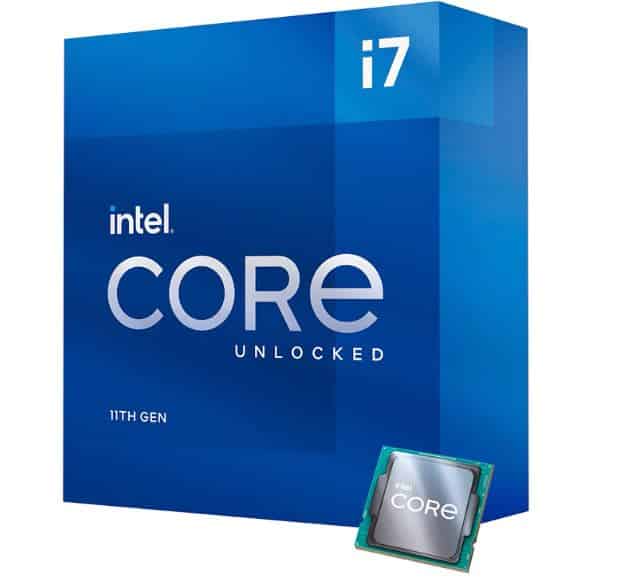
Previously when the Core i7 11700K was launched, it was more expensive than the previous members of its family. But this year it sits right under the $300 price tag on most marketplaces. It holds two extra cores and 4 extra threads as compared to the Core i5 11600K CPU.
But those two extra cores won’t make much of a difference unless you are dealing with productivity workloads apart from gaming.
Technically, you can expect the Core i7 11700K to perform the same as the Core i5 11600K in gaming workloads. But in content creation workloads, the extra cores would favour the Core i7 11700K to produce faster results.
So, if you play games, record them, and then do a lot of video editing to upload them on your YouTube channel, then i7 11700K is a complete package to accomplish those goals.
Other than the productivity workloads, the Core i7 11700K falls behind its AMD counterpart, the Ryzen 7 5800X. The AMD’s 5800X packs more clock speed to outperform the Core i7 11700K in most games, but the difference isn’t much to talk about.
But there’s an added benefit that the Core i7 11700K has over its competing chips from AMD and that the Intel Turbo Boost 3.0. This technology allows the 11700K to yield an extra 15% performance in single-threaded workloads.
Under intense workloads, this CPU can attain a boost clock speed of up to 5.0 GHz, but that would cost you more draw out of your mobo socket.
But in gaming, what matters the most is the average frames on your screen. And if we put both the Core i7 11700K along with the Core i5 11600K, there isn’t much difference to tell at this point. Moreover, there’s a slim difference in the price tag of both with the Core i7 11700K being slightly more expensive than the Core i5 11600K.
For just two extra cores, Intel has moved the clock speed from 3.9 GHz to 3.6 GHz, which somehow enables the Core i7 11700K to deliver more or less the same kind of frame rates that you can expect from the Core i5 11600K.
Yes, this CPU can support any graphics card to handle 1080p, 1440p, and even 4K gaming. But don’t expect any extra amount of frame rates just because it’s a Core i7 CPU.
The only added benefit that you’ll get with the Core i7 11700K over the Core i5 11600K is its ability to handle multiple threads at a single time. It has eight cores, so multithreaded performance on this CPU would be way better than any of the Core i5 chips in the Rocket Lake family.
Having more cores will allow you to stream and record your gameplay without compromising on your frame rates. And once the games would start taking advantage of the maximum cores on a CPU, the Core i7 11700K would stand still to its ground to deliver the best performance.
Intel Core i9 11900K – The Fastest 11th Generation Intel CPU for Hardcore Gaming
Cores: 8 | Threads: 16 | Base Clock Speed: 3.50 GHz | Boost Clock Speed: 5.3 GHz | Cache: 16MB | Socket: LGA 1200 | TDP: 95W
Reasons to Buy:
- Fast single-threaded performance
- Extreme gaming and productivity performance
- Unlocked for overclocking
- PCIe 4.0 support
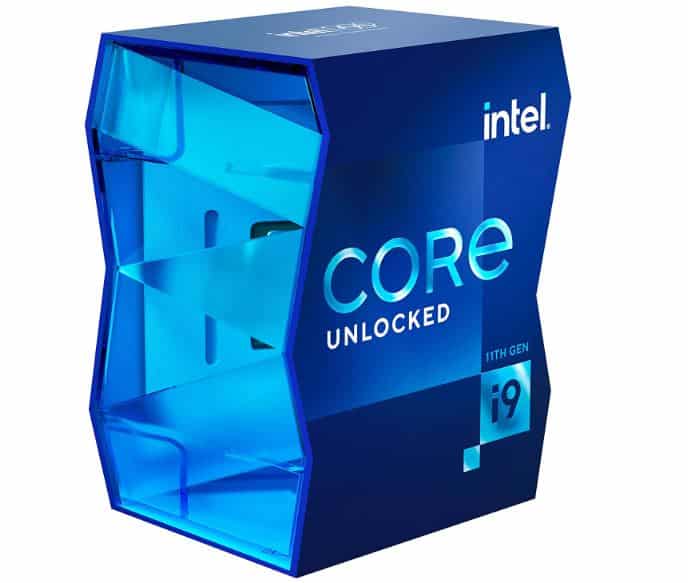
The Core i9 11900K is the most expensive CPU in Intel’s Rocket Lake Series, but it’s also more promising in terms of performance than one might expect out of this top-tier gaming CPU. But there are a lot of CPUs currently available that cost less and perform better than this chip. So going with such a saturated CPU is your own choice at the end of the day.
On paper, the Core i9 11900K looks like a downgrade from the previous 10-core Core i9 10900K. The Comet Lake’s Core i9 had two extra cores and more base clock speed on its cores. But with the 11th generation Core i9, Intel has trimmed the extra cores and 200 MHz to limit the TDP to 95W only.
The reduced power consumption and unlocked multiplier make the Core i9 11900K a favourable option for extreme overclocking. The most anyone could make out of this chip are hardcore gamers. By using a powerful liquid cooler, you can easily overclock this CPU to climb over 5.0 GHz.
In terms of turbo clock speed, Intel has assigned the same 5.3 GHz that we already have on the previous generation chips. Core i9 11900K is more of a CPU that’s oriented for gaming and productivity workloads just like its cousin, the Core i7 11700K.
For hardcore gamers, a CPU that can stream and record your gameplay at the same time matters a lot. For all those tasks, the Core i9 11900K shows up as a promising choice. It delivers excellent performance in both single and multi-threaded workloads outperforming all of its 11th-gen members.
In gaming, the Core i9 11900K beats the AMD Ryzen 9 5900X by a high margin. As compared to its other members like the Core i5 11600K and Core i7 11700K, the Core i9 11900K delivers a bit more frame rates here and there in games like Shadow of the Tomb Raider, Red Dead Redemption 2, and Assassin’s Creed Origins.
However, there’s not too much difference in the average frame rates to declare the Core i9 11900 a sharp winner. Yes, the extra L3 cache on this CPU makes it more responsive to the graphics card and other hardware to deliver better gaming performance. But it doesn’t wipe out the competition fully despite being a flagship CPU.
The Core i9 11900K was the fastest processor of its time but isn’t anymore faster when compared with any of Alder Lake or Raptor Lake Core i9 CPUs. But with respect to its family, it’s the most powerful to go with.
You can easily overclock this CPU using any of the current available Z590 motherboards. But even providing more voltage won’t get it past through mid-range Alder Lake or Raptor Lake chips. The Core i9 11900K is a good-to-go option only if you deal a lot with content creation workload.
But if it’s just about gaming, then the Core i5 11600K or Core i7 11700K both provide the same level of gaming performance for a lower price.
Verdict
Intel’s 11th generation brings you the best CPUs for gaming depending on every budget range. If you are too tight on budget and just need a CPU that can handle the load at 1080p resolution, then there isn’t anything better than the Core i5 11400F. It’s cheaper but has enough cores to let you meet the minimum CPU requirements of AAA games.
But if budget is not a problem and you are willing to spend a bit more cash for a solid gaming CPU in the 11th generation, then the Core i5 11600K is the all-rounder to go with. It has the same number of cores, but each of its cores is clocked at 3.9 GHz resulting in superior single and multi-core performance. This results in higher frame rates in titles that depend upon the single-core performance of a CPU.
And if you are a hardcore gamer who records or streams the gameplay on Twitch, Discord, or YouTube, then going with an octa-core CPU like Core i7 11700K or Core i9 11900K would deliver you plenty of raw performance. It’s up to you which one you choose between these two CPUs.
We recommend going with the Core i9 11900K as it has more boost clock speed and L3 cache, bringing pure gaming and productivity performance to your desk.
FAQs
Is 11th gen intel good for gaming?
Yes, most CPUs in the 11th-generation lineup are good for gaming. But it will also depend upon the type of games that you intend to play. For example, a Core i5 11400F CPU can easily handle ESports and Strategy game titles whereas for AAA games, you’ll have to go with Core i7 or Core i9 processors in the 11th generation.
Is Intel’s 11th gen worth it in 2023?
As far as the workload that you are dealing with falls within the cores and clock speed offered by 11th-generation chips, I believe they are still worth buying. For instance, the Core i9 11900K comes with 8 cores /16 threads along with a whopping boost clock speed of 5.3 GHz to chew the toughest CPU-intensive workloads.

Hi, my name is Masab, a die-hard PC enthusiast and founder of this blog. I love to share my prior experience with computers on this blog. Ask me anything about building a PC or troubleshooting PC errors, I’m here to help.

